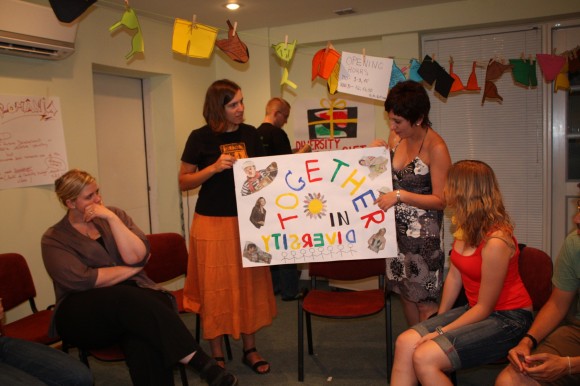Role and possibilities of youth organisations
Educational projects for Roma minority, projects addressing youth and senior employment, youth exchange featuring intercultural dialogue, projects with orphans and ideas on how to raise the economically positive thinking in Iceland were among many of the creative ideas discussed during the EYCE summer event on economic justice. The EYCE summer training “Facing the Economic Crisis – role and possibilities of youth organisations” took place from 1st – 8th of August 2010 in Klaipeda, Lithuania, bringing together a diverse and creative group of participants.
This training course was organised in cooperation with the local partner Taurage Evangelical Lutheran Parish and was an event directly following up the mandate of the EYCE General Meeting.
The event brought together more than 24 participants coming from all over Europe and beyond, with different cultural, social and denominational backgrounds, creating a unique and diverse basis for the discussions on the economic situation in various countries, and the positions of young people in these situations. Furthermore, the possible contributions of young people addressing these socially challenging situations were discussed by the participants.
During the training course inputs of three different guest speakers were provided to view the themes of the training course from various aspects. Entrepreneur and economist Jānis Ošlejs from Latvia gave an overview of the Economic situation in Europe, the unequal position of various social groups in Europe and beyond, as well as causes and consequences of these economic injustices. Theologian and Pastor Daniel Müller from Germany provided the theological aspects of economic justice, as well as touched upon the role of churches, and young people in churches in particular in order to address the economic injustices on various levels in Europe. The final part of the training course focused on practical work in order to address the economic injustice, as well as the fundraising possibilities and financial management of the youth organisations. Guest speaker Paul Welch from the United Kingdom gave a valuable input for the practical part of the training course.
Participants contributed actively to the process of the training course with their experiences and knowledge of the subject, and enriched the atmosphere of the event greatly with the creative approaches to the activities.

